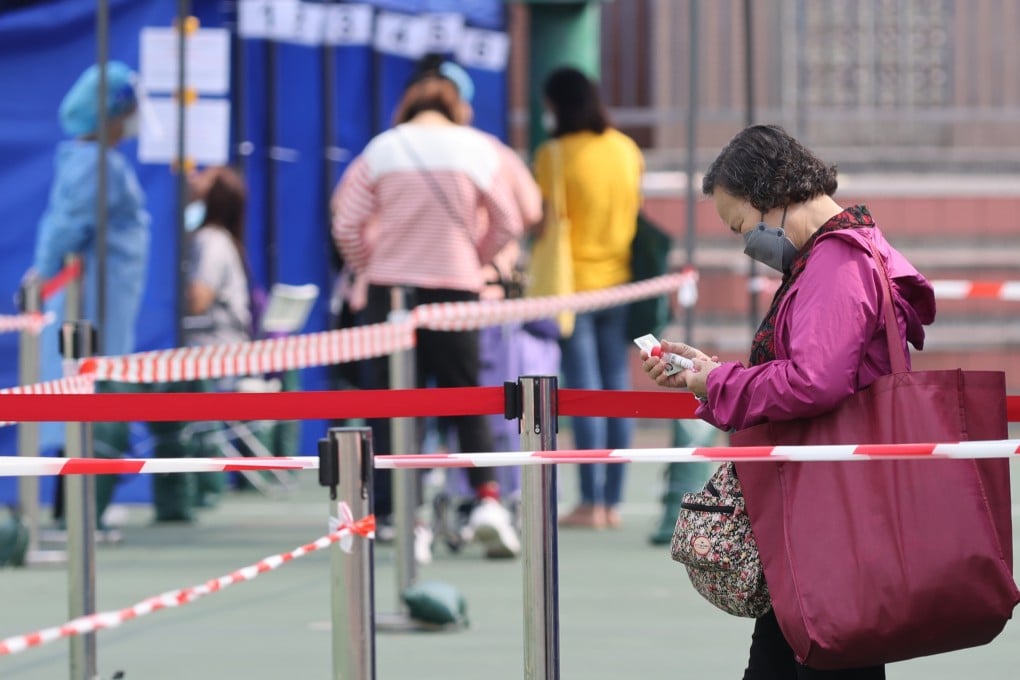Coronavirus: Hong Kong put the brakes on mass testing. What caused the policy U-turn?
- City leader Lam also hits out at pro-establishment camp, asks lawmakers to ‘reflect’ on having pressured government to carry out universal testing as soon as possible
- Pandemic situation, number of isolation facilities available among factors considered, source says, adding that ‘chances of doing it eventually are slim’

A high Covid-19 infection rate, the requirement of massive resources and weak mobilisation abilities are among the reasons behind the decision by Hong Kong’s leader to put on hold – if not indefinitely – the first universal testing drive in the city.
In a rare move, Chief Executive Carrie Lam Cheng Yuet-ngor on Monday also hit out at the pro-establishment camp, asking lawmakers to “reflect” on having pressured the government to carry out mass screening as soon as possible, saying the benefit for doing it now was much lower than the cost.
A government source said “the [mass testing] drive is now given a low priority and a new date has not been set either”.
“The drive should only be carried out when the infection figures are low, but by that time, we have to see whether abundant resources should be spent on the programme, or [whether] it can be replaced by proper contact tracing and other methods such as rapid antigen tests,” the source added.
An insider close to Beijing also told the Post that factors such as the pandemic situation and number of isolation facilities available had to be considered, adding that “the chances of doing it eventually are slim given Hong Kong’s capacity”.
Political pundits said they believed the government was trying to pacify the pro-establishment camp for not openly declaring that the citywide screening was not happening, while some local health experts said testing was still necessary to firmly shut down transmission.